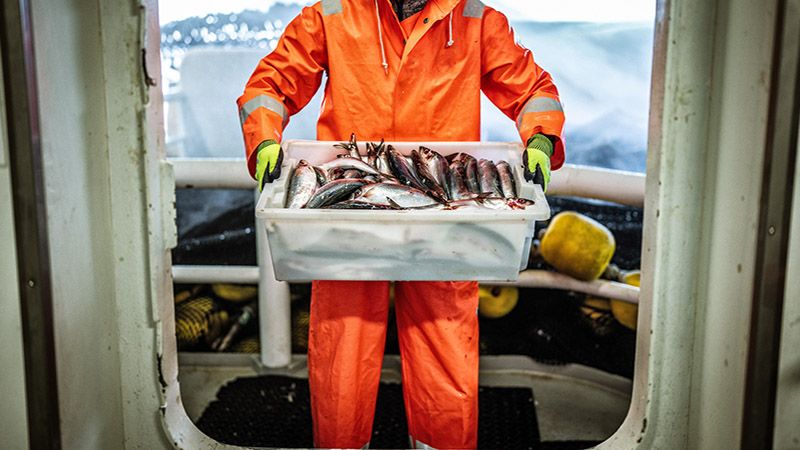Although seafood companies acknowledge material business risks in supply chain transparency, none of the companies have published plans to improve, FAIRR has found in its recent engagement report.
The report, Tracing Risk and Opportunity: The Critical Need for Traceability in Today’s Seafood Supply Chains, spoke to seven global seafood companies about supply chain transparency risks and asked companies to fully trace the origins of all wild-caught and farmed seafood they sell and all aquaculture feed ingredients they source. It found although these companies understand the risks of insufficient supply chain transparency, none have plans to implement robust traceability systems.
This engagement was supported by 35 investors representing $6.5trn (£5.1trn) in combined assets, including Nomura Asset Management and DNB Asset Management, and organisations including the World Wildlife fund-US (WWF-US), UNEP FI’s Sustainable Blue Economy Finance Initiative, the World Benchmarking Alliance (WBA) and Planet Tracker.
The report further found that only two of the seven companies engaged with – Charoen Pokphand Foods and Thai Union – have traceability commitments that cover all operations. None of the companies engaged with currently disclose progress towards these commitments.
Blurry supply chains can obscure the links between frequently consumed seafood products and environmental and social issues, such as human rights violations, habitat destruction, and overfishing. It can also help hide illegal, unreported and unregulated (IUU) fishing, which makes up 20% of global wild-caught seafood. Hence, consumers remain uncertain the fish they purchase and consume is sustainably sourced, the report said.
Regulators are acting on these risks and improving supply chain traceability in seafood markets with the Food Safety Modernization Act (FSMA) in the US and the Fishery Products Distribution Act in Japan that pushes companies to prove that products are sustainably sourced, but still more needs to be done to improve transparency.
As a result, FAIRR and its participating investors will enter ‘Phase Two’ of engagement in 2025.
Sofía Condés, director of investor outreach at FAIRR, said: “With 20% of global wild-caught seafood still coming from illegal, unregulated and unreported fishing activities, the true origin of fish remains unclear. For investors, this isn’t just a matter of transparency—it’s an escalating financial and reputational risk.
“As regulations tighten and consumer demand for greater accountability grows, companies that fail to implement robust traceability systems expose themselves to significant risk. Without these systems, they not only face compliance failures but also jeopardise their long-term profitability.
“Investors recognise that traceability isn’t just a regulatory necessity—it’s a strategic imperative for safeguarding consumer trust and long-term returns.”
Dai Yamawaki, senior portfolio manager at Nomura Asset Management, added: “Investors play a key role in highlighting the need for seafood companies to have stronger traceability systems.
“Through our engagement dialogues, companies seem aware of the need for better traceability, but awareness alone is not sufficient: we welcome proactive plans towards better traceability and its disclosure, including its progress.”








